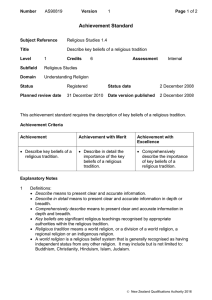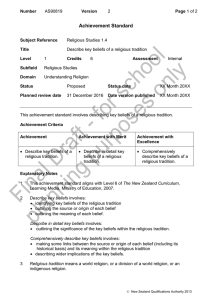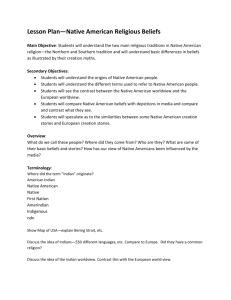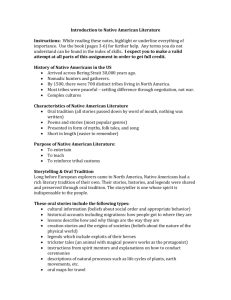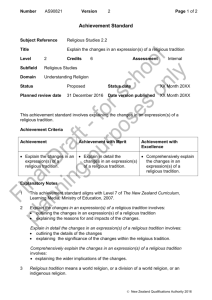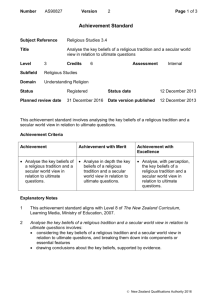90819 Describe key beliefs of a religious tradition
advertisement
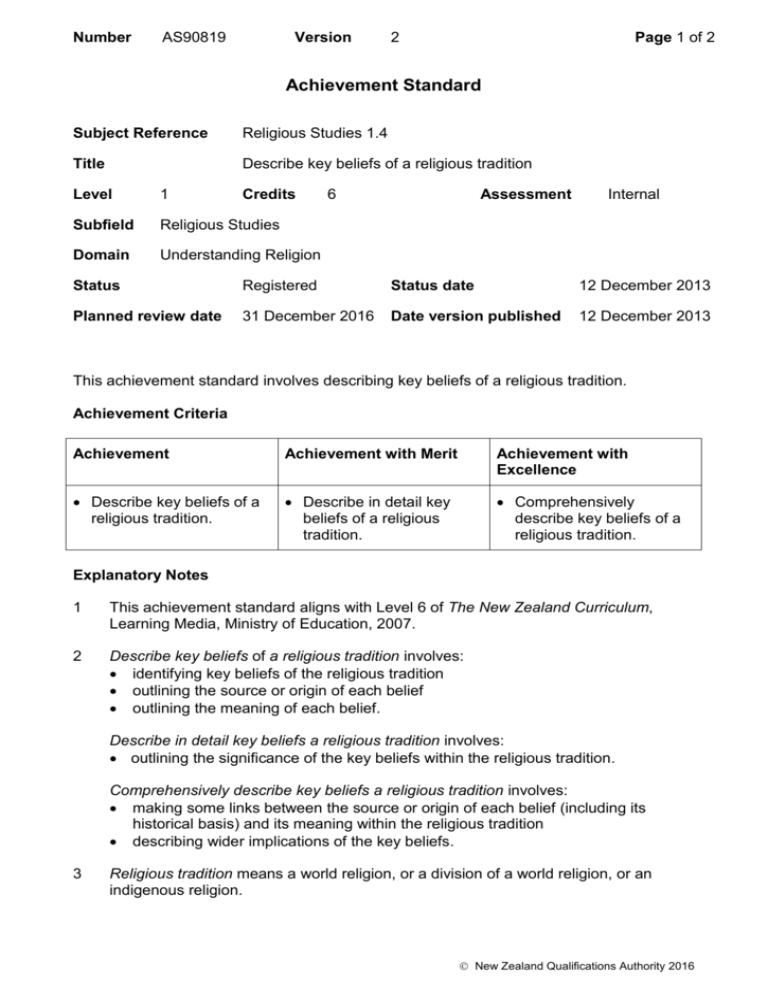
Number AS90819 Version 2 Page 1 of 2 Achievement Standard Subject Reference Religious Studies 1.4 Title Describe key beliefs of a religious tradition Level 1 Credits Subfield Religious Studies Domain Understanding Religion 6 Assessment Internal Status Registered Status date 12 December 2013 Planned review date 31 December 2016 Date version published 12 December 2013 This achievement standard involves describing key beliefs of a religious tradition. Achievement Criteria Achievement Achievement with Merit Achievement with Excellence Describe key beliefs of a religious tradition. Describe in detail key beliefs of a religious tradition. Comprehensively describe key beliefs of a religious tradition. Explanatory Notes 1 This achievement standard aligns with Level 6 of The New Zealand Curriculum, Learning Media, Ministry of Education, 2007. 2 Describe key beliefs of a religious tradition involves: identifying key beliefs of the religious tradition outlining the source or origin of each belief outlining the meaning of each belief. Describe in detail key beliefs a religious tradition involves: outlining the significance of the key beliefs within the religious tradition. Comprehensively describe key beliefs a religious tradition involves: making some links between the source or origin of each belief (including its historical basis) and its meaning within the religious tradition describing wider implications of the key beliefs. 3 Religious tradition means a world religion, or a division of a world religion, or an indigenous religion. New Zealand Qualifications Authority 2016 Number AS90819 Version 2 Page 2 of 2 4 A world religion is a religious belief system that is generally recognised as having independent status from any other religion. Buddhism, Christianity, Hinduism, Islam, and Judaism are examples of world religions. 5 Wider implications may be social, historical, geographical, political, or personal. 6 Key beliefs are significant religious teachings recognised by authorities within the religious tradition. 7 Key beliefs may include: Buddhism: the Three Jewels, the Four Noble Truths, the Three Marks of Existence, the Eightfold Path Hinduism: Atman and Brahman, Dharma, Karma, Moskha Islam: the Prophets, monotheism Judaism: the Ten Commandments, monotheism Christianity: the Resurrection, the Trinity, the Incarnation Indigenous religions: polytheism, animism. 8 Conditions of Assessment related to this achievement standard can be found at www.tki.org.nz/e/community/ncea/conditions-assessment.php. Quality Assurance 1 Providers and Industry Training Organisations must have been granted consent to assess by NZQA before they can register credits from assessment against achievement standards. 2 Organisations with consent to assess and Industry Training Organisations assessing against achievement standards must engage with the moderation system that applies to those achievement standards. Consent and Moderation Requirements (CMR) reference 0233 New Zealand Qualifications Authority 2016
